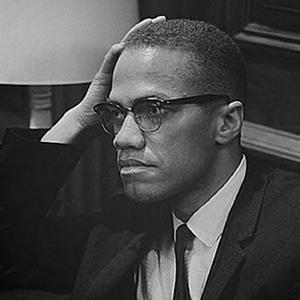Islamic and Black US Communities Remember Malcolm X
February 25, 2010
Nico Colombant | Chicago
One of the foremost, if controversial, figures of the civil rights movement in the United States was Malcolm X. He, himself, rejected the term civil rights, preferring to call it a fight for human rights. Islamic and black communities in Chicago recently held events to remember his life, which they said was marked by transformation.
Once a controversial figure, Malcolm X, assassinated 45 years ago, is now considered an icon in the struggle for black equality.
He was a leader of the black power movement and refused to renounce the use of violence by blacks in their own self defense.
Malcolm X became prominent in Chicago which boasts the only US college that bears his name, Malcolm X Community College.
Last week, a Muslim youth group screened a documentary about Malcolm X and put on an arts show about him in Chicago. It was in this city that Malcolm joined the Nation of Islam, an American offshoot of Islam that advocated separating the races.
Shamar Hemphill organized the screening and the art show. He described his fascination with Malcolm X.
“Malcolm X is just bigger than the praise that people give him or even some of the bad negative media that he gets sometimes. He plays a role in all our lives and that does not just mean the African-American community, but also throughout the world,” Hemphill said.
The movie and performances told the story of Malcolm’s childhood as a victim of white supremacists, his early adult years as a petty criminal and prisoner, and then his conversion to Islam and rise to fame as a Muslim and African American leader, with the last name X that replaced his birth name. He said it had been imposed by white slave owners.
Hemphill said the words of Malcolm X still resonate. “He was saying it is not time for griping or complaining, but it is time for people in communities to take action and step up as leaders and the men especially,” she stated. “And when I heard that phrase, I felt like he was talking to me, even now.”
Hundreds of people came to honor the man they call El Hajj Malik El Shabazz, the name Malcolm took after he made a pilgrimage to Mecca, embraced universal brotherhood, and distanced himself from the Nation of Islam.
Malcolm X , a 1992 movie, dramatized the last minutes of Malcolm’s life as he spoke to followers in a New York ballroom.
In Chicago last week, artist Tasleem Jamila Firdausee talked about the legacy of malcolm X. “He left that never-ending fight for justice, freedom, equality, to never give up and to be bold and speak what you believe and to go out and make it happen, not just sit around, like he said by any means necessary go out and make it happen,” Firdausee said.
On stage, she performed in his honor.


















